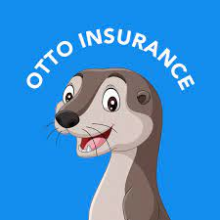Unoccupied and Vacant Home Insurance

Joy Wallet is advertiser-supported: we may earn compensation from the products and offers mentioned in this article. However, any expressed opinions are our own and aren't influenced by compensation. To read our full disclosure, click here.
What is unoccupied and vacant home insurance?
- Get Home (or Rental) Insurance as Low as $19/Month
- Compare rates in minutes
- No cost or obligation to check
- Rates subject to qualification and approval
Costs of unoccupied and vacant home insurance
- For a standard homeowners insurance policy. The national average cost might be around $1,200 annually for a home insured for $250,000 in dwelling coverage.
- For an unoccupied or vacant home insurance policy. The premium for the same home could increase to between $1,800 and $1,920 annually.
Features of the unoccupied and vacant home insurance
Property damage
- Fire and smoke damage. Protects against one of the most common and destructive forces, ensuring homeowners can rebuild or repair after a fire.
- Weather-related damage. Coverage extends to natural events, including lightning strikes, windstorms, hail, and, in some cases, the weight of snow or ice. These weather phenomena can cause significant damage to structures, particularly when no one is present to take immediate action.
- Water damage. Some policies may offer limited coverage for water damage, such as from burst pipes, which is a risk in unoccupied homes during cold weather. However, it's important to note that flood damage typically requires a separate policy.
Liability insurance
- Medical bills. If a visitor or trespasser gets hurt on the property, this coverage can help pay for their medical expenses.
- Legal defense and settlements. Should an injured party file a lawsuit, liability protection can cover legal fees and any settlements or judgments against the homeowner.
Vandalism and malicious mischief
- Graffiti and property defacement. The cost of cleaning, repainting, or repairing the property following acts of vandalism.
- Break-ins and theft. While traditional homeowners insurance might limit coverage for theft in vacant homes, specialized policies can offer broader protections for stolen fixtures or property damage resulting from a break-in.
Additional considerations
- Glass breakage. Coverage for windows and glass doors, which are often targets for vandals.
- Building ordinance or law coverage. If local building codes have changed since the home was built, this coverage can help cover the cost of bringing the property up to current standards during repairs.
- Loss of rent. For landlords, some policies might offer compensation for lost rental income if the property becomes uninhabitable due to a covered peril.
- Get Home (or Rental) Insurance as Low as $19/Month
- Compare rates in minutes
- No cost or obligation to check
- Rates subject to qualification and approval
Companies offering unoccupied and vacant home insurance
Foremost Insurance Group
American Modern Insurance Group
Allstate Insurance
Farmers Insurance
FAQs
- Get Home (or Rental) Insurance as Low as $19/Month
- Compare rates in minutes
- No cost or obligation to check
- Rates subject to qualification and approval
Pros and cons
- Comprehensive protection. Offers specific coverages not typically included in standard homeowners policies.
- Flexibility. Policies can be tailored for short-term or long-term needs.
- Higher costs. Due to the increased risks, these policies are generally more expensive.
- Exclusions. Certain causes of damage may be excluded, requiring a careful review of the policy.
The bottom line
Joy Wallet is an independent publisher and comparison service, not an investment advisor, financial advisor, loan broker, insurance producer, or insurance broker. Its articles, interactive tools and other content are provided to you for free, as self-help tools and for informational purposes only. They are not intended to provide investment advice. Joy Wallet does not and cannot guarantee the accuracy or applicability of any information in regard to your individual circumstances. We encourage you to seek personalized advice from qualified professionals regarding specific investment issues. Featured estimates are based on past market performance, and past performance is not a guarantee of future performance.
Our site doesn’t feature every company or financial product available on the market. We are compensated by our partners, which may influence which products we review and write about (and where those products appear on our site), but it in no way affects our recommendations or advice. Our editorials are grounded on independent research. Our partners cannot pay us to guarantee favorable reviews of their products or services.
We value your privacy. We work with trusted partners to provide relevant advertising based on information about your use of Joy Wallet’s and third-party websites and applications. This includes, but is not limited to, sharing information about your web browsing activities with Meta (Facebook) and Google. All of the web browsing information that is shared is anonymized. To learn more, click on our Privacy Policy link.
Images appearing across JoyWallet are courtesy of shutterstock.com.








